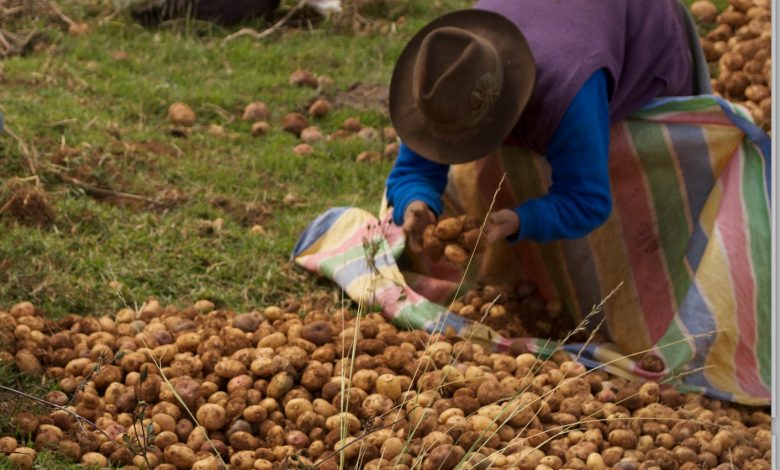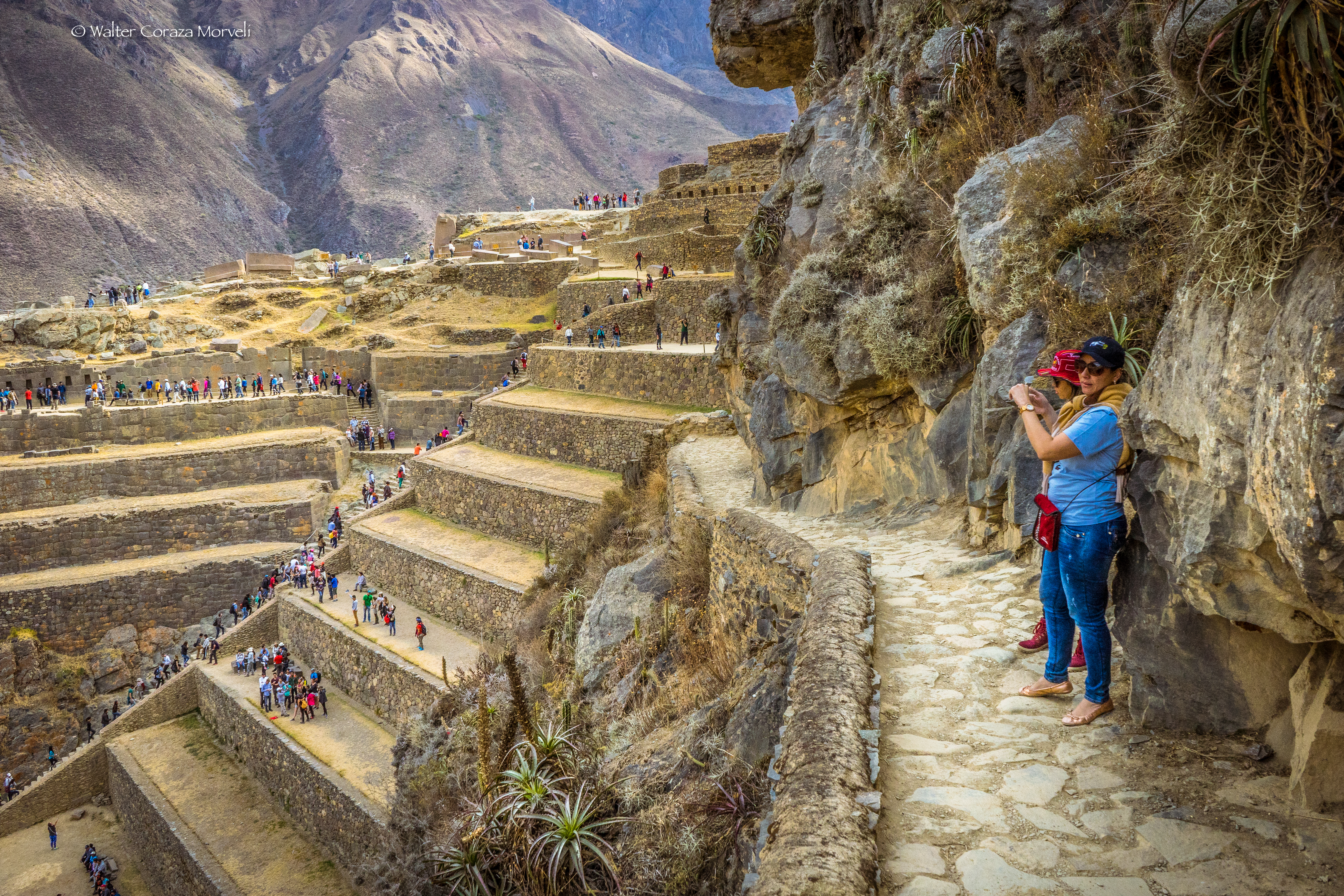Free Trade and Destruction in Peru

Free trade is hitting the fan in Peru these days. Given a masive drop in the prices for potatoes in the field, below the cost of production, due to imports of industrial, precooked potatoes from Europe.
The National Rural Workers Confederation of Peru (Confederación Campesina del Perú) declared a 72 hour general strike beginning yesterday. It is most strongly felt in the regions of Junín, Ayacucho, Andahuaylas, Huancavelica, and Huánuco but is impacting other regions as well.
Perú’s numerous pollerías, chicken shops, have ceased purchasing local potatoes and are buying prebagged, frozen and imported potatoes. Their cost based on industrial agriculture and transoceanic shipping is still less than local people can produce potatoes and restaurants can process them.
Even though their taste and quality is far inferior, European potatoes now dominate the market for French Fries in this country where the potato was domesticated and where millions of people still depend on their small-scale cultivation for family income.
As a result, the rural workers (campesinos) are marching and blocking roads, demanding changes in the regimes of pricing, even if such may not be possible under the agreements Peru negotiated with its Free Trade pacts.

This issue is about so much more than simply french fries to go with your roast chicken. It is ultimately about the survival of rural peoples with their more than ten thousand years of local history and culture and their social organization.
As it becomes uneconomic for them to continue to produce their native products, even with the help of the Ministry of Agriculture’s outreach services, more an more people will leave their farms and communities and migrate, now that they have come to need money. Rural societies will collapse and massive numbers of people will be looking for work in urban and rural economies that are not flexible enough to absorb them. This is likely to destabilize national politics into the future.
Furthermore, the cultural core of the country, its rural communities, which survived 500 years of often brutal colonialism may now be seeing their obituary coming. For centuries, elites have plotted how to break up these communities and seize their land. With free trade, they now may get their wish but at a horrible political cost.
They might wish to study the example of Mexico, its rural corn production, and free trade. The costs have been high. Peru, unless it changes its free trade mantra, is setting itself up to pay equally or more severe costs as small-scale rural agriculture becomes less and less sustainable due to free trade.




